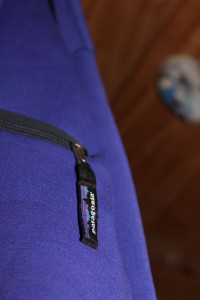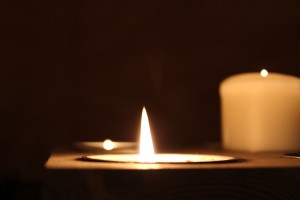When I was in high school, I went to a conference where I received a red notebook which contained important and life-changing information about self-image. It was there I learned the powerful truth of Psalm 139, that I am “fearfully and wonderfully made” and that I could wake up and look at in the mirror every morning believing that God had made me “just the way I am.” I tried, but could never quite get there because in my most honest moments, I knew that there were things about me that I’d want to change. Still, it was helpful teaching, then and now, in our body image obsessed culture.
As a pastor, though, my understanding of this verse has been profoundly challenged over the years because we live in a world where people are born, not just with a large nose, or ears that stick out, but with cerebral palsy, Down syndrome, missing limbs, and other life-altering conditions. I teach theology to the staff at our church each Thursday morning, and last spring we had a doctor who specializes in gender ambiguity come and present to us. A small minority of children are born with this imperfection, leaving them in a land between male and female.
She gave us a technical report on why gender ambiguity happens, then spoke of some of the challenges faced by both parent and child. The conclusion of our discussion was about the role of God in all this. How do we square the “fearfully and wonderfully made” promise of Psalm 139 with the reality of our imperfections?
It’s tempting to go down the rabbit hole and try to unearth God’s role in the imperfections that come, uninvited into our lives. Is God the active agent – willing that some are born with pieces that don’t work? Maybe God is passive – not intervening with a “healing,” but allowing imperfections for some higher purpose. Of course, as anyone who’s suffered this kind of brokenness knows, there are also people who believe that sickness is there precisely so that you can pray for a miracle and, by the way, if a miracle doesn’t happen then don’t blame God, blame you’re puny faith. The “miracle healing” view has caused more damage in this world than I have time to articulate, so let’s not go there. But what about the other two views?
In The Day Metallica came to Church my friend John Van Sloten shares the beautiful story of his son’s birth and the initially difficult discovery that he has Down syndrome. Because I’ll review the book later, I don’t want to give every part of John’s struggle away, but listen to what he writes, years after his son was born: “One morning I was praying for my son Edward. It had been fifteen years since the day of his birth, and that morning I prayer a a prayer I never could have imagined praying. In all truth and with genuine earnestness, I thanked God the day of Edward’s birth, the actual moment of his entry into our lives. In particular I thanked God for the gift of that day, for how it really was the best thing God could have ever done in our lives.”
The best thing! I think the book of Job is written, in part, to help us discover that there are some things we’ll never know. Those who pontificate in the book of Job are silenced by God, as He shows them what they don’t know. He humbles them, silences them, and never answers the “why” question. But in the end we know that Job says this: “I had heard of you by the hearing of the hear, but now my eye sees you…”
Over, and over, and over again, I’ve learned this about suffering: Those who turn to God, who cry out, wrestle, pray, mourn, struggle – come through the fires of suffering knowing a profound intimacy with their creator, an intimacy which, it appears, isn’t possible if everything always turns out perfectly. This isn’t a syrupy invitation to “just be thankful.” Far from it, it’s only honest wrestling that ultimately takes us where we need to go. But when that wrestling takes us there, it’s beautiful. I’ve seen it in families with special needs children. I’ve seen it in adults with MS, or those who are battling cancer. I’ve known a measure of this in my own life, as my non-smoker dad’s untimely death from a disease usually reserved for smokers pushed me into an ocean of grief and depression at the end of high school, spawning my own health issues. In each case, there’s a special beauty, the kind that, apparently, can only be forged in the fire.
And so we’re left still wondering: A) results of the fall? B) God’s perfect plan? C) both A and B?
But we can know this: The broken nature of our bodies, our families, our world, is never a threat to that which is our source of joy and hope, namely intimacy with Jesus. To the contrary, it seems that this “imperfections” seem to be the very soil in which intimacy grows best. What a world: broken and beautiful. And though we long for one, and recoil at the other, God is able to use both in very good ways.
Do you have a story of wrestling with God over imperfections, or how God has used brokenness. Please comment, for the good of us all!! Thanks.











